Tankless Water Heaters: Myths and Cost-Effective Benefits
Are you tired of running out of hot water in the morning shower?
A tankless water heater could be the solution you’re looking for. Tankless water heaters, also known as tankless hot water heaters, supply hot water on demand without the massive storage tank that typical systems require. Whether you choose an electric tankless water heater or a gas model, these revolutionary systems provide various advantages for homeowners wishing to improve their water heating system. Tankless water heater installation may appear daunting at first, but understanding the procedure and benefits will allow you to make an informed decision for your house.
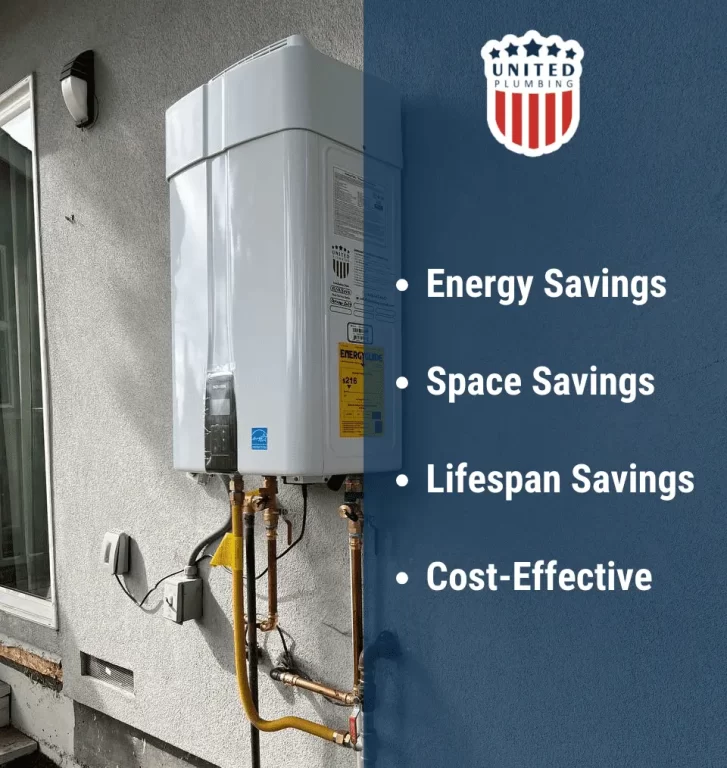
What is a Tankless Water Heater?
A tankless water heater, unlike a traditional water heater, does not keep hot water in a big tank. Instead, it heats the water as it travels through the device, providing hot water only when it is needed. This on-demand solution eliminates the energy loss caused by repeatedly heating and reheating water in a storage tank.
Tankless water heaters are available in a variety of configurations, including electric, gas, propane, and natural gas models. Each type has advantages based on your home’s current infrastructure and your individual requirements.
These systems are often wall-mounted and much smaller than regular water heaters, making them perfect for houses with limited space. Whether you need a system for your primary residence or an RV tankless water heater for your nomadic lifestyle, a tankless alternative is available to match your needs.
Common Myths about Tankless Water Heaters
Before we get into the benefits, let’s clear up some common misunderstandings that may be holding you back from making the switch.
- They’re too expensive.
One of the most common misconceptions regarding tankless water heaters is that they are unreasonably expensive. While the initial cost of installing a tankless water heater is higher than that of typical systems, this perspective ignores long-term savings. A premium tankless system can cost between $1,000 and $3,000 for the unit alone, as opposed to $300-$900 for a traditional tank model. However, when you consider the increased lifespan and energy savings (usually 24-34% more efficient for homes that use 41 gallons or less of hot water per day), the overall cost of ownership frequently benefits the tankless solution.
Many homeowners are also eligible for rebates and tax breaks when they install energy-efficient equipment, which help to offset the initial outlay.
- They Do Not Provide Enough Hot Water.
Another prevalent problem is that tankless systems cannot meet home demand. This myth is most likely based on encounters with early models or incorrectly sized units. Modern tankless water heaters can produce 2-5 gallons of hot water per minute, with gas-powered devices often producing more flow than electric counterparts. For the majority of households, this is sufficient. The trick is to choose the best tankless water heater that is adequately scaled for your home’s needs. Larger houses with high hot water demands (for example, many showers running at the same time) may benefit from adding multiple units or a larger-capacity system. - Installation is very complicated.
While tankless water heater installation requires professional skill and, in some cases, home modifications (especially for gas models), the procedure has become more simplified as these systems have grown in popularity. Most skilled plumbers have vast experience with tankless installs. The process usually takes a day or less, though homes that need extensive electrical renovations or gas line adjustments may require more time.
Once installed, these systems are designed to be simple and convenient, with user-friendly controls and, in many cases, smart home integration features.
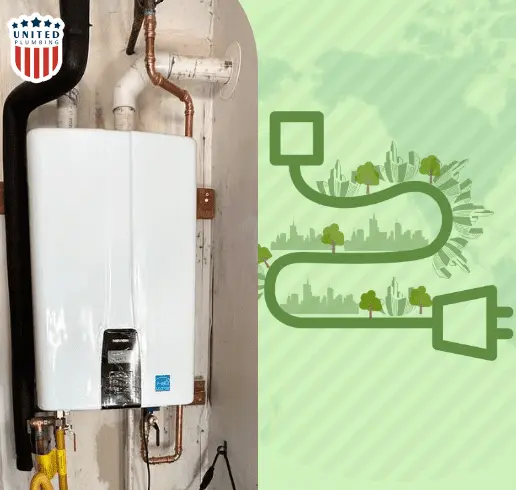
Advantages of a Tankless Water Heater
Now that we’ve addressed the myths, let’s look at the real benefits that are making tankless systems more popular among homes.
- Energy Efficiency and Lower Bills
The most appealing feature of tankless water heaters is their energy efficiency. Traditional tank heaters heat water continuously, whether you use it or not, resulting in severe standby energy losses. In contrast, tankless systems just heat water as needed. The Department of Energy estimates that converting to a tankless system can save homeowners $100 or more per year on water heating costs. These savings accumulate dramatically throughout the system’s lifetime, frequently covering the greater initial cost. For environmentally aware homeowners, lower energy consumption implies a smaller carbon impact, making tankless systems an eco-friendly option. - Long-Term Durability and Low Maintenance
A well-maintained tankless water heater can service your home for more than 20 years, whereas traditional water heaters typically last 8-12 years. This longer lifespan results in fewer replacements and less waste. Maintenance requirements are likewise relatively low. Annual flushing to remove mineral buildup is suggested, especially in locations with hard water. Some homeowners opt to add water softeners alongside their tankless systems to further reduce maintenance requirements and lengthen equipment life. When tankless water heater repair is required, components are usually easily available, and the modular design of most units makes repairs easier than with traditional systems.
Compact Size and Space Optimization
Traditional water heaters can take up a lot of floor space, which could be utilized for storage or other purposes. Tankless units, which are normally the size of a compact suitcase, mount on the wall, freeing up important space. This space-saving design makes tankless systems ideal for smaller houses, condos, or properties where maximizing usable area is critical. An RV tankless water heater offers the same benefits as a tiny home or RV, but in a smaller package.
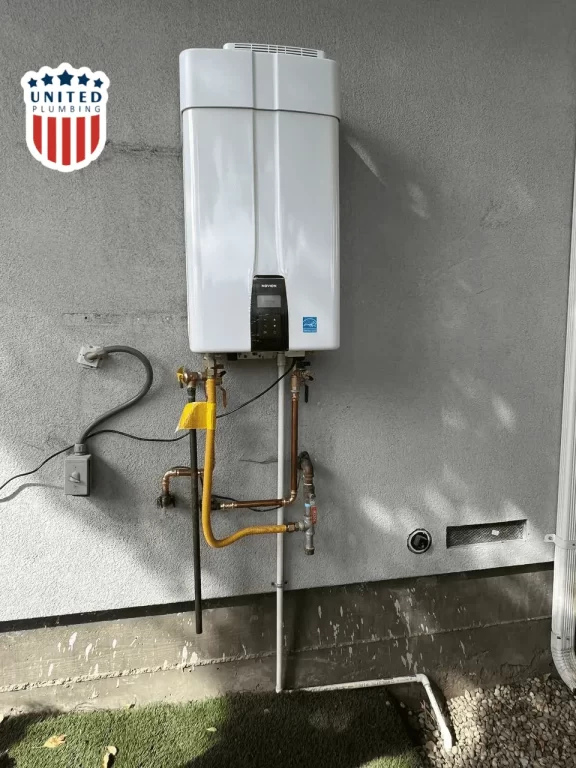
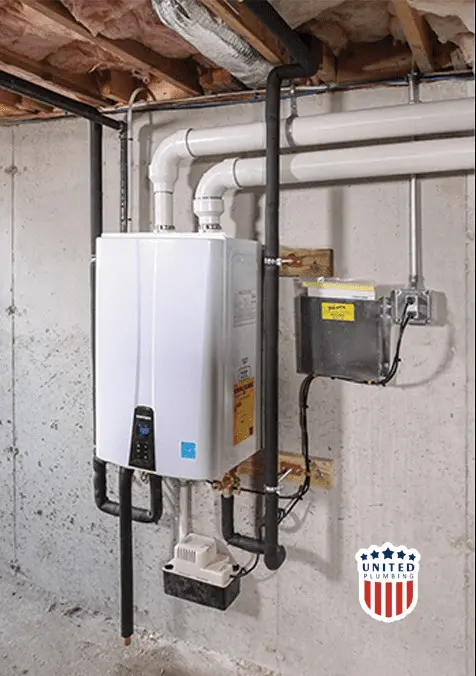
How Does Tankless Water Heater Installation Work?
Understanding the installation process might help you get ready for the switch to tankless technology.
- Modern Installation Techniques
Professional tankless water heater installation normally involves the following steps:
- Assessment: A competent plumber assesses your home’s current plumbing, electrical capacity (for electric models), or gas supply.
- Sizing: The specialist suggests a unit that is appropriate for your household’s peak hot water demand.
- Preparation: Can involve electrical upgrades, gas line adjustments, or venting installation.
- Installation: The old system is removed, and the new tankless unit is installed and connected to water, power, and gas sources.
- Testing and calibration: The system is tested to ensure appropriate operation and efficiency.
- Assessment: A competent plumber assesses your home’s current plumbing, electrical capacity (for electric models), or gas supply.
Modern installation procedures prioritize minimizing disruption to the home while providing a safe, code-compliant installation.
- Cost Comparison to Traditional Systems
A tankless system installation costs between $1,000 and $3,000, depending on where you live, the model you choose, and any home changes required. While this exceeds the $300-$800 installation cost of traditional tanks, the long-term operational benefits frequently outweigh the expenditure. Consider the following comparative costs:
- Traditional tank water heaters cost $700-$1,700 (unit + installation).
- Tankless water heater: $2,000 to $6,000 (unit + installation)
- Traditional tank water heaters cost $700-$1,700 (unit + installation).
However, when considering the extended lifespan (20+ years vs. 8-12 years) and energy savings ($100+ per year), many homeowners conclude that tankless systems provide better value over time.
Indoor vs. Outdoor Installation Options
Tankless water heaters provide installation flexibility that conventional tank systems cannot match. Indoor installations locate the unit near where hot water is most needed, decreasing wait time and water waste. These installations necessitate suitable ventilation for gas models as well as adequate wall space. Outdoor installations are possible in temperate temperatures, freeing up inside space. Modern outdoor units have frost protection and weatherproof casing. For some households, installing many smaller units at areas of use (kitchens, bathrooms) is more efficient than using a single larger unit.
Who Should Consider Using a Tankless Water Heater?
While tankless systems have various advantages, they’re especially well-suited for:
- Households with varying occupancy: Tankless systems’ on-demand feature benefits empty nesters who periodically entertain family, vacation homes, or properties with varying occupancy.
- Energy-conscious homeowners: Tankless systems are compatible with the goals of lowering utility expenses and minimizing environmental impact.
- Homeowners looking to stay put: The longer you live in your home, the more likely you are to return your initial investment in energy savings. Tankless water heaters are ideal for use in apartments, condos, tiny homes, and RVs due to their compact form.
- New Construction: Installing a tankless system during new home construction is often less expensive than retrofitting an existing home.
Tankless water heaters are a modern answer to an age-old problem: efficient hot water supply. While the initial cost is higher than with standard systems, the combination of energy efficiency, space savings, longer lifespan, and endless hot water makes them an appealing option for many households. As technology advances and installation becomes more standardized, these systems are likely to become even more accessible and affordable. A tankless water heater can be a good investment for homeowners who intend to stay in their current home for more than a few years—both financially and in terms of everyday comfort and convenience.
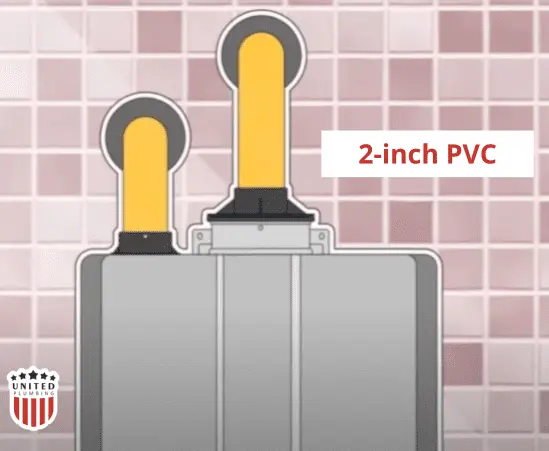
If you’re thinking about switching to tankless technology, talk to a knowledgeable plumbing specialist who can evaluate your individual needs and help you decide whether a tankless water heater is suited for your home. With correct sizing and competent installation, you’ll benefit from unlimited hot water and lower energy expenditures for decades to come.
Post views: 798

